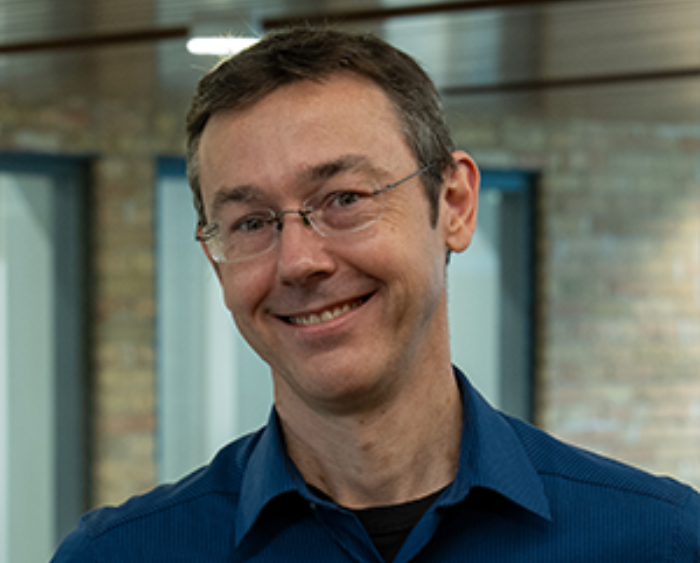Andrew Gard's YouTube channel takes off

Assistant Professor of Mathematics Andrew Gard started his YouTube channel, Equitable Equations, during the pandemic to support the remote learning of his students. Four years later, the channel has grown to serve nearly 25,000 subscribers.
The channel, which has become prominent in the data science community, offers short videos that break down complex data science concepts into bite-sized tutorials. Gard also emphasizes a humanistic approach to data.
“I talk about data science and programming in the R language from a human-first perspective,” Gard explained. “Data comes from people and should serve people in the end. A lot of times, our image of a data scientist is the image of a lone person sitting in a dark room somewhere, when in reality, data science is very collaborative and touches on every aspect of the human experience.”
Gard's approach to creating content is twofold: “Sometimes I create videos on what I think would be helpful to my students, and I provide an example. More often these days, it comes from a larger conversation in the data community. Sometimes I invite guests to weigh in on an issue or offer a tutorial.”
With a current total of 388 videos, Gard's most popular video, Learn R in 39 Minutes, has over 480,000 views.
Gard donates a portion of the advertising revenue generated by Equitable Equations to local equity-based charities. Many of the organizations that have benefited from the donations are learning programs in Chicago. Recently, the profits went to the Roberti Community House in Waukegan, Illinois, an organization that offers after-school programs and a food pantry to the community.
Gard's focus on equity stems from what he calls the exclusionary nature of the field.
“Historically and recently, mathematics and computer science have been extremely exclusionary,” Gard said. “The only way that changes is if we take active steps to push back on that and specifically take steps to be inclusive.”
The channel has allowed Gard to connect with a community of like-minded data scientists and programmers who are concerned with the overarching consequences of their work rather than with capital.
“There are many people out there talking about what are we really doing here, what is making our lives better, how can we ensure that, as our technology and data science moves forward, we are truly being served and serving one another,” he said. “I have met a lot of other public data scientists through this who share my perspective of data as a human endeavor. We share ideas about how we code but also about how code interacts with the people around us.”

